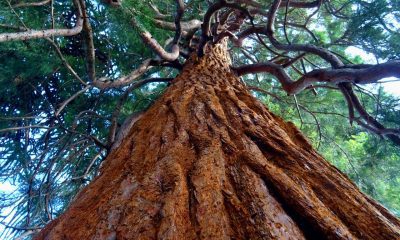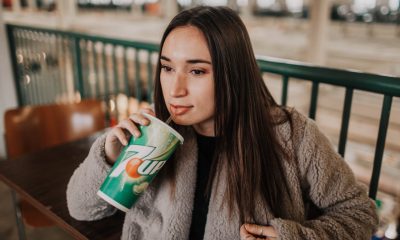Breaking
Study: Many herbal supplements aren’t what the label says
ALBANY, N.Y. — Bottles of Walmart-brand echinacea, an herb said to ward off colds, were found to contain no echinacea at all. GNC-brand bottles of St. John’s wort, touted as a cure for depression, held rice, garlic and a tropical houseplant, but not a trace of the herb.
In fact, DNA testing on hundreds of bottles of store-brand herbal supplements sold as treatments for everything from memory loss to prostate trouble found that four out of five contained none of the herbs on the label. Instead, they were packed with cheap fillers such as wheat, rice, beans or houseplants.
Based on the testing commissioned by his office, New York Attorney General Eric Schneiderman said Tuesday he has sent letters to the four major store chains involved – GNC, Target, Walmart and Walgreens – demanding that they immediately stop selling adulterated or mislabeled dietary supplements.
Schneiderman said the supplements pose serious risks. People who have allergies or are taking certain medications can suffer dangerous reactions from herbal concoctions that contain substances not listed on the label, he said.
“This investigation makes one thing abundantly clear: The old adage `buyer beware’ may be especially true for consumers of herbal supplements,” the attorney general said.
The herbal supplement industry criticized the method used to analyze the samples and raised questions about the reliability of the findings.
Walmart’s vice president of Health & Wellness, Carmen Bauza, said testing by Walmart suppliers hasn’t revealed any issues with the relevant products, but the company will comply with the attorney general’s request to stop selling them in New York.
“We take this matter very seriously and will be conducting side-by-side analysis because we are 100 percent committed to providing our customers safe products,” Bauza said.
Walgreen pledged to cooperate with the attorney general, who asked the store chains for detailed information on production and quality control.
“We take these issues very seriously and as a precautionary measure, we are in the process of removing these products from our shelves as we review this matter further,” Walgreen spokesman James Graham said.
GNC said it, too, will cooperate, but spokeswoman Laura Brophy said: “We stand by the quality, purity and potency of all ingredients listed on the labels of our private-label products.”
Target said it can’t comment without reviewing the full report.
Nutritionist David Schardt of the Center for Science in the Public Interest said the tests show that the supplement industry is in urgent need of reform, and until that happens, consumers should stop wasting their money.
A 2013 Canadian government study estimated there are 65,000 dietary supplements on the market, consumed by more than 150 million Americans. The nonprofit American Botanical Council estimated 2013 sales of herbal supplements in the U.S. at $6 billion.
The Food and Drug Administration requires companies to verify their products are safe and properly labeled. But supplements are exempt from the FDA’s strict approval process for prescription drugs.
Schneiderman said tests found no echinacea or any other plant material in bottles of Walmart’s Spring Valley Echinacea. He said no ginseng was found in 20 tests of GNC’s Herbal Plus Ginseng, which is taken to boost energy.
Other supplements tested included garlic, which is said to boost immunity and prevent heart disease; ginkgo biloba, often touted as a memory-booster; and saw palmetto, promoted as a prostate treatment.
DNA tests found such substances as rice, beans, pine, citrus, asparagus, primrose, wheat, houseplant, wild carrot and unidentified non-plant material – none of which were mentioned on the label.
The store chain with the poorest showing was Walmart, where only 4 percent of the products tested showed DNA from the plants listed on the labels.
The investigation looked at six herbal supplements sold at stores across the state. Testing was performed by an expert in DNA technology, James Schulte II of Clarkson University in Potsdam, New York.
The DNA tests were done on three to four samples of each supplement purchased. Each sample was tested five times. Overall, 390 tests involving 78 samples were conducted.
Steve Mister, president and CEO of the Council for Responsible Nutrition, a dietary supplement trade group, criticized the testing procedure and accused Schneiderman of engaging in a “self-serving publicity stunt under the guise of protecting public health.”
“Processing during manufacturing of botanical supplements can remove or damage DNA,” Mister said. As a result, he said, DNA analysis “may be the wrong test for these kinds of products.”
Michael McGuffin, president of the American Herbal Products Association, said identification of an herb through DNA testing must be confirmed through other means, such as chromatography or microscopy.
But Arthur Grollman, a physician and pharmacology professor at Stony Brook University, called the study “a well-controlled, scientifically based documentation of the outrageous degree of adulteration in the herbal supplement industry.”






















